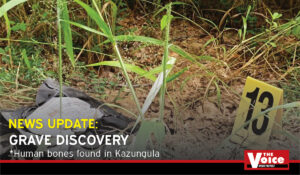WHO challenges Botswana to increase efforts to eradicate Malaria
Botswana is battling to eliminate Malaria from its borders and with all its efforts and resources channeled towards fighting the disease, the country has only managed to clear forty percent of the incidents during the past ten years.
While the Ministry of Health sees this as an incredible progress, the World Health Organisation (WHO) says Botswana has been stagnant and not making much progress in the fight against the deadly disease.
“While congratulating Botswana for achievements in the last five years, we are greatly concerned that we still have unnecessary malaria deaths,” indicated WHO country representative, Dr Josephine Namboze during commemoration of World Malaria day in Shorobe village this past Friday.
WHO was actually calling on Botswana government to renew its political commitment and bolster investment in Malaria prevention and control.
“WHO calls on Botswana to redouble its commitment to implement an ambitious and innovative acceleration plan to rapidly reduce the burden of malaria and save lives. This can be done by ensuring that everyone, everywhere has access to quality and affordable malaria services they need,” noted Namboze.
The strategy according to WHO will require a more granular understanding of who is missing out, why they are vulnerable and what are their barriers to accessing malaria preventive and treatment services.
“On investments, we are responsible for increasing funding of malaria interventions through primary healthcare approaches so that malaria services are accessed by the most vulnerable populations wherever they are. In 2021 endemic countries and partners mobilized only 50 percent of the estimated US$7.3 billion required globally to stay on track to defeat malaria. We therefore call on our Ministry of Health Botswana to keep malaria high on the national public health agenda,” further advised Namboze.
Botswana has so far managed to reduce Malaria cases from 28.7 per 1000 population in 2001 to 0.30 per 1000 population in 2022.
Primary Health Care Senior Consultant in the ministry of Health, Dr Malebogo Kebabonye noted that this is an “Incredible progress” but that the country still needs extra effort to sustain the gains.
“It is possible to eliminate Malaria. To date WHO has awarded certificates to 42 countries for having successfully eliminated Malaria, the most recent being Azerbajan and Tajikistan in Central Asia,” she further explained.
Like many other countries around the world, Botswana has been battling with this killer disease spread by mosquitoes especially around districts rich in water sources including Boteti, Ngamiland, Okavango, Tutume, Chobe, Selebi Phikwe and Bobirwa.
However of recent Palapye in the central district and some parts of South and Kweneng districts, are said to have been recording incidents of Malaria especially during the rainy season.
But Kebabonye maintains that through government’s continued efforts of tackling the mosquitoes, Malaria eradication in Botswana can be achieved.
“In the past year we had to urgently intervene and reactively spray in the Southern DHMT, Jwaneng Samane area, greater Francistown in Ditladi and Kweneng,” further explained Kebabonye.
The interventions referred to include annual indoor residual spraying, mass distribution of long lasting insecticidal nets and routine distribution through government’s antenatal care and child welfare clinics.
The greatest challenges to elimination of Malaria are low community response, inadequate ownership and the ultimate low update of Malaria elimination interventions.
Ngamiland according to the ministry is among districts with low uptake of Malaria elimination Interventions and community members including government employees, especially are said to be making the coverage slow as they often refuse to open doors to allow sprayers inside their houses.
For the past two years Ngami DHMT covered only 56 percent of the exercise against its set target of 85 percent coverage.
Efforts to prevent, control and eliminate Malaria are based on United Nations sustainable Development Goal (SDG) number 3, which calls on its country members to, “Ensure healthy lives and promote well-being for all at all ages by year 2030. By that year all the UN members including Botswana should have ended “epidemics of AIDS, tuberculosis, malaria and tropical diseases as well as combat hepatitis, water-borne diseases and other communicable diseases.”





















